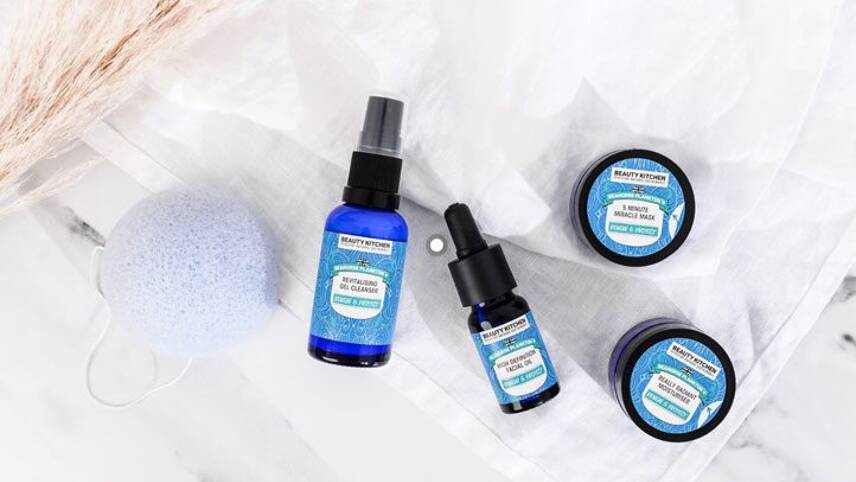Register for free and continue reading
Join our growing army of changemakers and get unlimited access to our premium content

Beauty businesses of all sizes are eligible to join the coalition. Image: Beauty Kitchen
Formed by industry body the British Beauty Council, the Sustainable Beauty Coalition has been set up to outline “how the industry can move forward to become an integral part of a sustainable society” – and to convene brands in collaborative actions to deliver this vision.
The Coalition’s founding brands include Weleda UK, Holland and Barrett, Lush, Walgreens Boots Alliance, Avon, Elemis, Beauty Kitchen and Floral Street Fragrances. Avon was notably purchased by Natura & Co last year. Also sitting on the steering committee are representatives from women’s lifestyle magazine Marie Claire, advocacy group A Plastic Planet and the International Natural and Organic Cosmetics Association (NATURE).
In the first instance, the Coalition will develop a strategy and roadmap with environmental targets. It has not yet outlined which environmental issues will be addressed, beyond the transition to net-zero. Here, the hope is to support the UN’s ongoing Race to Zero initiative. Across all environmental and social issues, the Coalition will be guided by three focus pillars: transparency and accountability; standards and certification and innovation.
As well as adopting the strategy and roadmap targets themselves, participating businesses and other organisations will encourage policymakers and regulators to implement stronger requirements for the entirety of the UK beauty sector. In a statement, the Coalition said that collaboration and speaking with a collective voice should strengthen links across the industry.
Beauty Kitchen’s co-founder Jo Chidley said the Coalition is aiming to garner the support of at least 100 brands as soon as possible – certainly ahead of COP26 in Glasgow this November.
Chidley said: “There are many reasons to join the SBC from a business point of view, but two, in particular, stand out: firstly, our mission is to help tackle the climate and waste crisis, and secondly, it’s what consumers want.
“The customers of the UK’s beauty industry are increasingly aware of the impact of our buying decisions on the planet; now is the time to take action and show them that we can make a collective positive impact.”
To Chidley’s points, the launch of the Coalition comes after the British Beauty Council published the results of a survey of 3,000 adults in the UK, garnering their opinions on the environmental, social and ethical impacts of the beauty sector.
The survey was conducted in partnership with environmental charity Hubbub. It found that 41% of consumers feel guilty about the negative impact of their beauty and grooming products and that many were willing to change behaviours to abate that guilt. Six in ten said they would be willing to switch to refillable products while three in tens said they would be willing to reduce the number of products they buy.
SEEN Again
Earlier this week, beauty agency SEEN launched a new recycling scheme for media professionals and beauty influencers, enabling them to recycle packaging from products such as cosmetics, fragrances and skincare. Brands that use SEEN for their media and influencer sampling and gifting include Fenty Beauty, Tatcha, Charlotte Tilbury and Shiseido. However, packaging from all brands will be accepted under the scheme.
Think tanks have estimated that the global cosmetics and toiletries sector is producing 120 billion units of packaging a year – and that’s not to mention products such as plastic-stemmed cotton buds, wet wipes and individual dental floss sticks.
Sarah George


Please login or Register to leave a comment.